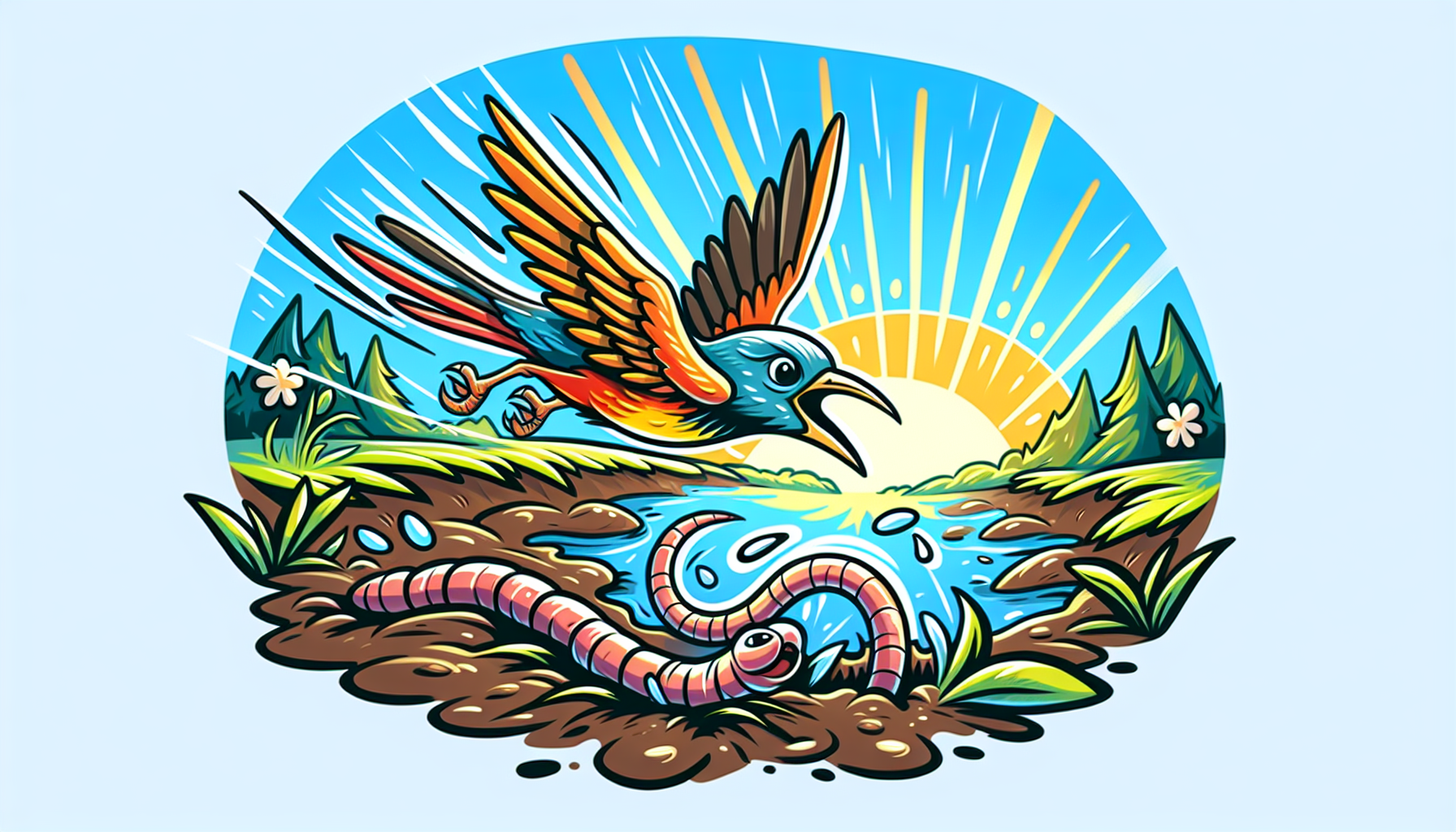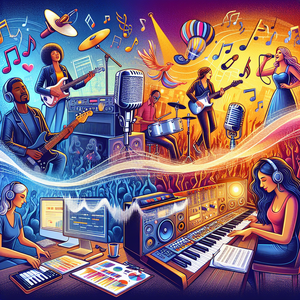YouTube Music and the Rise of the DIY Musician

Historically, breaking into the music industry was a daunting challenge that often required significant financial investment and connections within established networks. Major record labels served as gatekeepers, controlling which artists got airtime and recognition. However, the advent of digital platforms—most notably YouTube Music—has disrupted this traditional model. Artists can now upload their work directly, bypassing conventional barriers and connecting with fans on their own terms. YouTube Music, with its expansive reach and user-friendly interface, serves as a crucial tool for independent artists. By providing a platform where artists can showcase their music, share music videos, and engage with fans, YouTube Music levels the playing field. This shift has made it possible for talented musicians from diverse backgrounds to gain visibility and build their fanbase without needing a major label's endorsement.
Empowerment Through Accessibility
One of the most significant advantages of YouTube Music is its accessibility. Aspiring artists no longer need to invest in expensive studio time or elaborate marketing budgets to share their music. Instead, they can create and upload content using just a smartphone and a passion for music. The platform encourages creativity and experimentation, allowing artists to showcase their artistry through various formats, including music videos, live performances, and behind-the-scenes content. The democratization of music distribution fosters a more inclusive environment where anyone with talent and dedication can thrive. This newfound accessibility has given rise to a vibrant community of DIY musicians who are not only making music but also shaping the future of the industry.
Success Stories of DIY Musicians
Several independent musicians have leveraged YouTube Music to carve out successful careers, demonstrating the platform's potential. Billie Eilish is perhaps one of the most notable examples. She gained initial recognition through her unique sound and captivating visual content shared on YouTube. Her success story illustrates how an artist can cultivate a dedicated fanbase without the backing of a major label. Similarly, Chance the Rapper has utilized platforms like YouTube Music to distribute his work for free, building a loyal following that has translated into significant commercial success. His approach reflects a growing trend among DIY musicians who prioritize direct engagement with their audience. Lizzo, too, exemplifies the power of YouTube Music. After years of hard work and independent releases, her popularity surged due to viral moments on social media and her impactful presence on the platform. These artists demonstrate that with the right combination of talent, perseverance, and savvy use of digital platforms, anyone can achieve recognition in the music industry.
Tips for Aspiring DIY Musicians
For those looking to follow in the footsteps of these successful artists, several strategies can maximize their potential on YouTube Music: 1. Create Engaging Content: Beyond music, artists should consider diversifying their content by creating vlogs, tutorials, or Q&A sessions. Engaging with fans on a personal level helps build a community around the music. 2. Utilize Social Media: Promoting music on social media platforms can drive traffic to YouTube Music. Artists should leverage platforms like Instagram, TikTok, and Twitter to tease new releases and foster engagement. 3. Collaborate with Other Musicians: Collaborations can introduce artists to new audiences. By working with fellow creators on YouTube Music, musicians can tap into each other's fanbases, expanding their reach. 4. Engage with the Community: Interacting with fans through comments and messages fosters loyalty and encourages word-of-mouth promotion. Building a strong community is essential for a sustainable career. 5. Optimize for Search: Utilizing SEO strategies can enhance discoverability. Artists should incorporate relevant keywords in titles, descriptions, and tags to increase visibility on YouTube Music.
YouTube Music has fundamentally altered the landscape of the music industry, providing a powerful platform for independent musicians to thrive. By eliminating barriers to entry and offering tools for self-promotion, it empowers artists to take control of their careers in unprecedented ways. As the digital age continues to evolve, the potential for DIY musicians to reach global audiences and create meaningful connections with fans grows ever larger. The rise of the DIY musician is not just a trend; it’s a testament to the power of creativity, community, and technology in reshaping the music industry. With passion and dedication, aspiring artists can harness the potential of platforms like YouTube Music to realize their dreams and share their unique voices with the world.
Digital Marketing Specialist for Musicians
Music labels, artist management firms, and independent marketing agencies focusing on the entertainment sector.
Core Responsibilities
Develop and execute digital marketing strategies specifically for independent musicians to enhance their online presence.
Analyze data from social media and streaming platforms to optimize promotional efforts and identify audience trends.
Collaborate with artists to create engaging content that resonates with their target audience.
Required Skills
Proficiency in social media marketing tools and analytics platforms (e.g., Google Analytics, Hootsuite).
Strong understanding of SEO and content marketing strategies tailored for the music industry.
Excellent communication skills and a passion for music.
Music Video Producer
Production companies, independent artists, and digital content agencies.
Core Responsibilities
Conceptualize and produce music videos that align with an artist's brand and vision.
Coordinate all aspects of video production, including budgeting, scheduling, and directing shoots.
Collaborate with artists and creative teams to ensure the final product meets artistic and commercial standards.
Required Skills
Experience with video production tools and software (e.g., Adobe Premiere Pro, Final Cut Pro).
Strong storytelling abilities and creativity in visual media.
Familiarity with current trends in music video production and online distribution.
Music Licensing Coordinator
Music publishing companies, film studios, and advertising agencies.
Core Responsibilities
Manage the licensing process for independent artists seeking to use their music in film, TV, and advertising.
Negotiate contracts and ensure compliance with copyright laws and licensing agreements.
Build relationships with producers and content creators to promote the use of independent music.
Required Skills
Strong understanding of copyright law and music licensing processes.
Excellent negotiation and communication skills.
Experience in the music industry and familiarity with digital platforms like YouTube Music.
Social Media Manager for Independent Artists
Artist management teams, music labels, and independent musicians.
Core Responsibilities
Create and execute social media strategies that engage fans and promote music releases.
Monitor, analyze, and report on social media metrics to refine outreach strategies.
Engage with followers through comments, messages, and live sessions to cultivate a community around the artist.
Required Skills
Strong knowledge of various social media platforms and their algorithms, particularly in the context of the music industry.
Excellent written and verbal communication skills, with a flair for storytelling.
Experience with graphic design tools (e.g., Canva, Adobe Creative Suite) for creating engaging visuals.
Music Data Analyst
Music streaming services, record labels, and analytics firms focused on the entertainment industry.
Core Responsibilities
Analyze streaming data and audience metrics to provide insights that inform marketing and promotional strategies for independent musicians.
Collaborate with artists and teams to understand their goals and translate data into actionable strategies.
Track trends in music consumption and provide recommendations for optimizing music releases and promotional efforts.
Required Skills
Proficiency in data analysis tools and software (e.g., Excel, SQL, Tableau).
Strong analytical and problem-solving skills with a keen interest in the music industry.
Ability to communicate complex data insights in a clear and compelling manner.


